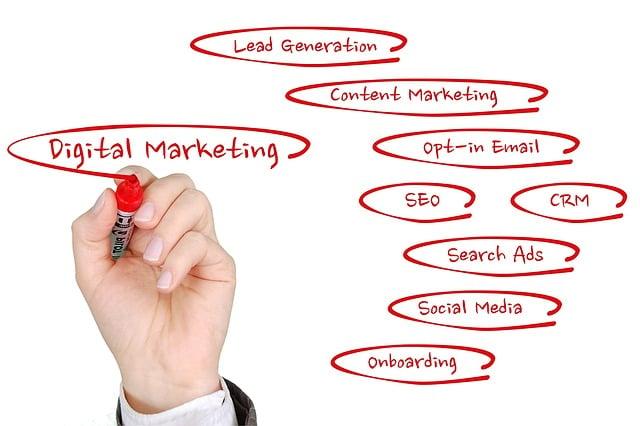AI chatbots are transforming food service operations through AI predictive maintenance for kitchen equipment. By leveraging machine learning and data analysis, these tools anticipate equipment failures, minimize downtime, and reduce costs. They offer real-time monitoring, insightful alerts, repair guides, and scheduling assistance, ensuring efficient kitchen operations and enhanced customer service. Integrating AI chatbots can significantly improve operational efficiency and customer support in industries like catering through proactive maintenance and instant 24/7 support. To implement successfully, businesses should identify needs, choose a suitable AI platform, train the model with relevant data, tailor the chatbot's knowledge base to specific equipment and issues, and define key performance indicators (KPIs) for measurement.
“Revolutionize your business operations with AI chatbot implementation services, especially tailored for efficient kitchen management. This article explores the transformative power of artificial intelligence in maintaining kitchen equipment through predictive maintenance. We delve into the benefits of integrating AI chatbots, enhancing customer service and operational efficiency.
From understanding AI’s role in predictive maintenance to a comprehensive step-by-step guide for implementation, this resource is your roadmap to leveraging AI’s potential. Discover how AI can ensure smooth kitchen operations and elevate your business.”
- Understanding AI Predictive Maintenance for Kitchen Equipment
- Benefits of Integrating AI Chatbots in Business Operations
- Implementing AI Business Chatbot Services: A Step-by-Step Guide
Understanding AI Predictive Maintenance for Kitchen Equipment

AI predictive maintenance for kitchen equipment is transforming the way food service businesses operate. By leveraging machine learning algorithms and data analysis, AI chatbots can anticipate when appliances like ovens, refrigerators, and dishwashers are likely to fail, enabling proactive replacement or repair. This not only minimizes downtime but also reduces costs associated with unexpected breakdowns.
With real-time monitoring and predictive insights, these chatbots can help maintain the efficiency and safety of kitchen operations. They can alert staff about maintenance needs, schedule servicing, and even provide step-by-step repair guides. This proactive approach ensures that kitchen equipment runs smoothly, contributing to better food quality and service reliability in restaurants and catering facilities.
Benefits of Integrating AI Chatbots in Business Operations

Integrating AI chatbots into business operations offers a multitude of benefits, especially in specialized sectors like food service. One notable advantage is the potential for AI predictive maintenance for kitchen equipment. By analyzing usage patterns and historical data, these intelligent systems can anticipate when machinery might fail, allowing businesses to schedule maintenance proactively. This reduces unexpected downtime, minimizes costly repairs, and ensures smooth culinary operations.
Furthermore, AI chatbots enhance customer service through instant, 24/7 support. They can answer frequent queries, provide order updates, and even take partial orders, freeing up human staff to focus on more complex tasks. This efficiency not only improves employee satisfaction but also boosts customer experience and loyalty.
Implementing AI Business Chatbot Services: A Step-by-Step Guide

Implementing AI Business Chatbot services is a strategic process that can transform customer support and operational efficiency, especially in industries like culinary where AI predictive maintenance for kitchen equipment plays a vital role. Here’s a step-by-step guide to ensure a smooth integration:
1. Identify Needs & Goals: Begin by evaluating your business requirements and setting clear objectives. Understand the pain points in your customer service or operational workflows that an AI chatbot could address, such as scheduling maintenance for kitchen equipment, providing troubleshooting tips, or answering frequently asked questions. Define key performance indicators (KPIs) to measure the success of your chatbot implementation.
2. Choose a Platform & Train the Model: Select a robust AI platform capable of handling conversational interactions and equipped with natural language processing (NLP) capabilities. Gather relevant data, including historical maintenance records, equipment manuals, and common queries. Train the AI model using this data to ensure accurate predictions and responses. Tailor the chatbot’s knowledge base to your specific kitchen equipment models and common issues, focusing on predictive maintenance scenarios.
AI business chatbot implementation services offer a revolutionary approach to enhancing customer support and streamlining operations. By integrating AI predictive maintenance for kitchen equipment, businesses can automate tasks, reduce downtime, and improve overall efficiency. The benefits of AI chatbots are clear, from cost savings to improved customer satisfaction. Following the step-by-step guide provided, companies can successfully implement these services, positioning themselves for a competitive edge in today’s digital landscape.
